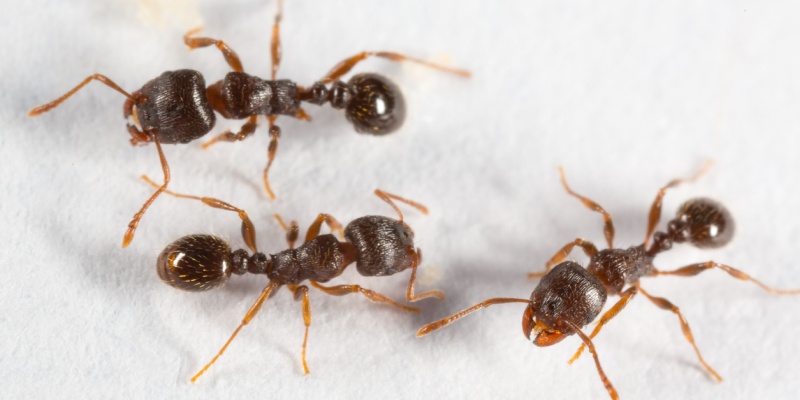The warm climate in Nashville makes it an ideal place for a diverse array of ant species. While some ants are merely a nuisance, others can cause significant damage to property or pose health risks. Understanding the types of ants that inhabit this region can help you manage and prevent infestations effectively.
The Most Common Ants Found in Nashville
1. Odorous House Ants (Tapinoma sessile)
- Description Small, dark brown to black ants about 1/8 inch long.
- Behavior Known for their peculiar odor when crushed, often described as a rotten coconut smell.
- Habitat Prefer moist environments and are commonly found indoors near food sources.
2. Carpenter Ants (Camponotus spp.)
- Description Larger ants ranging from 1/4 to 1/2 inch long, typically black or red and black.
- Behavior Unlike termites, they do not eat wood but excavate it to create nests, causing structural damage.
- Habitat Often found in decaying wood, including trees, stumps, and wooden structures.
3. Pavement Ants (Tetramorium caespitum)
- Description Small brown to black ants about 1/8 inch long with parallel lines on their head and thorax.
- Behavior Known for creating nests under sidewalks, driveways, and building foundations.
- Habitat Commonly invade homes in search of food, particularly sweets and proteins.
4. Fire Ants (Solenopsis invicta)
- Description Reddish-brown ants about 1/8 to 3/8 inch long with a painful sting.
- Behavior Aggressive and known for their fiery sting which can cause allergic reactions in some individuals.
- Habitat Build large mounds in open areas such as lawns and fields.
5. Argentine Ants (Linepithema humile)
- Description Light to dark brown ants about 1/8 inch long.
- Behavior Form large colonies that can displace native ant species due to their aggressive nature.
- Habitat Prefer moist environments and often nest in soil or under debris.
Why Knowing Your Ant Species Matters
Identifying the specific type of ant infesting your home or garden is crucial for effective control. Different species have unique behaviors, nesting habits, and preferences for food sources. This knowledge allows you to tailor your pest management strategies accordingly:
- Targeted Treatments Use insecticides or baits specifically designed for the ant species present.
- Preventative Measures Implement measures that address the specific habitat preferences of the ant species.
- Professional Help When necessary, seek assistance from pest control experts who can provide specialized treatments based on the identified ant species.
Preventing Ant Infestations
Here are some general tips to prevent ant infestations:
1. Maintain Cleanliness
Keep your home clean, especially in kitchen areas where food crumbs can attract ants.
2. Seal Entry Points
Inspect and seal cracks and gaps around windows, doors, and foundations where ants might enter.
3. Proper Food Storage
Store food in airtight containers to minimize attractants.
4. Remove Moisture Sources
Fix leaks and reduce moisture levels around your home, as many ant species prefer damp environments.
5. Regular Inspections
Conduct regular inspections of your property to detect early signs of ant activity.
Ant infestations can be a real nuisance, but understanding which species you're dealing with is key to effective management. In Nashville, common culprits include odorous house ants, carpenter ants, pavement ants, fire ants, and Argentine ants. Each species has unique behaviors and preferences, so identifying them accurately can help you implement the most effective control measures.
By maintaining cleanliness, sealing entry points, storing food properly, removing moisture sources, and conducting regular inspections, you can reduce the likelihood of an ant infestation. However, if the problem persists or becomes overwhelming, don't hesitate to seek professional pest control services to ensure your home remains ant-free.

